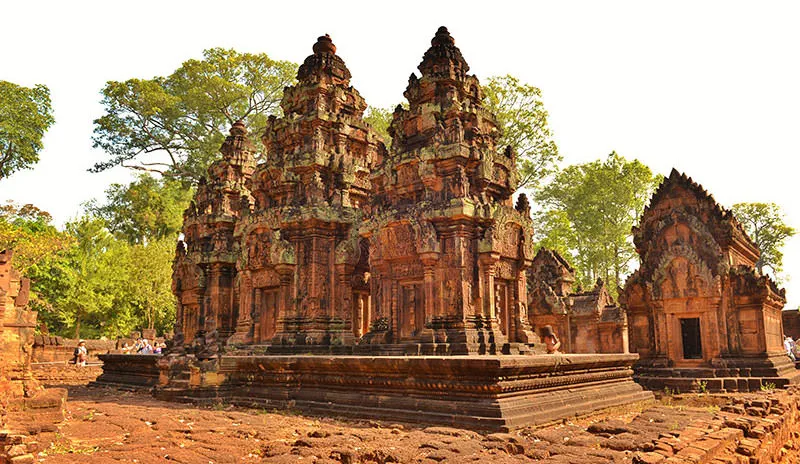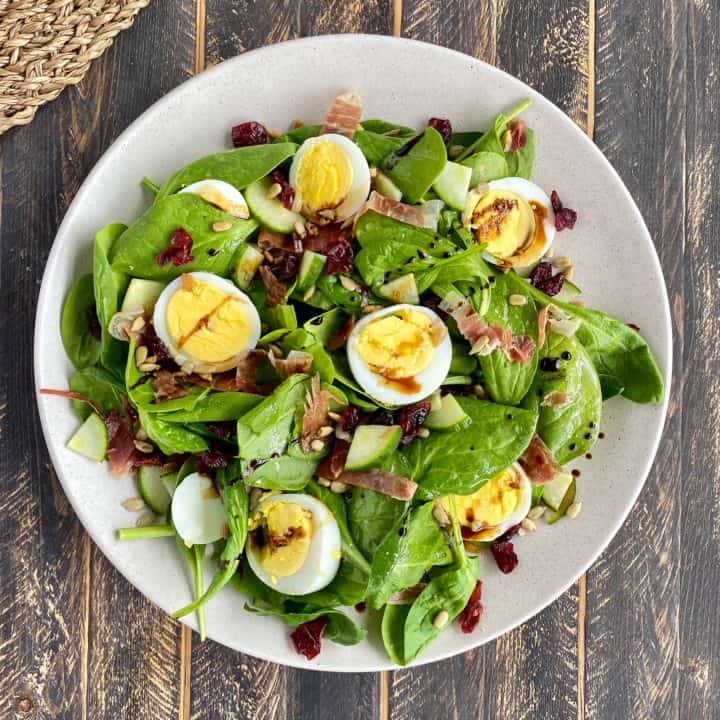It’s dark and the path is rocky. I stumble, but catch myself, intent on the destination. It’s 5 a.m. in Siem Reap, and the dim outline of Angkor Wat looms in the distance.
My husband, Benjamin, and I have joined others hiking toward the famous ancient icon of Cambodia. Sunrise is the best time to see the temple, and that’s what we aim to do.
One of the largest religious monuments in the world, Angkor Wat casts a commanding presence. Originally built as a Hindu temple, it became a Buddhist temple in the 12th century.
As we reach our destination along a lake near the temple, the gray sky slowly turns to pink above Angkor Wat. The scene reflects in the lake, creating a stunning double image that draws oohs and aahs from the crowd.
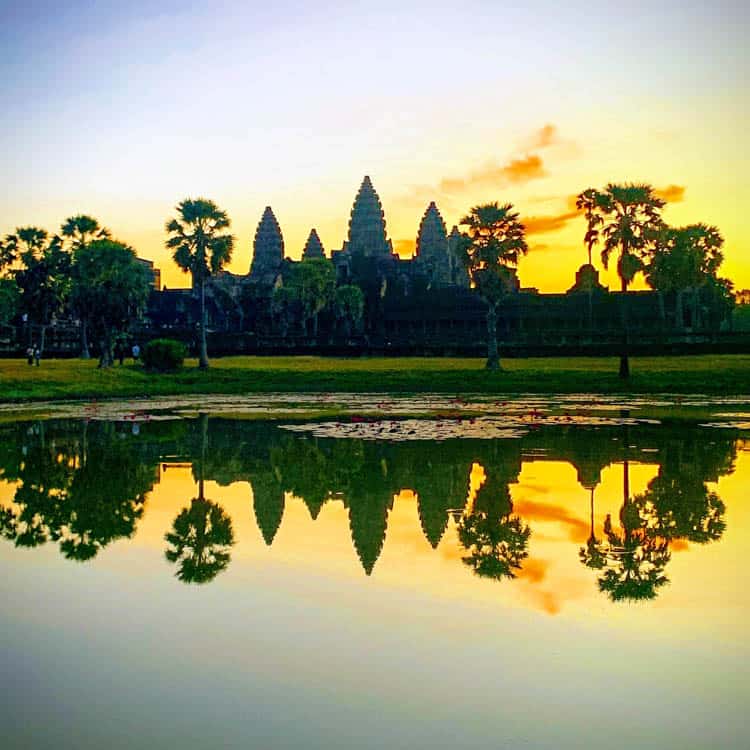
ANGKOR ARCHEOLOGICAL PARK
Angkor Wat is just one of the many ancient temples at Angkor Archeological Park, a UNESCO World Heritage Site. The temples were built from the 9th to the 13th century by the kings of the mighty Khmer Empire, which once ruled what is now Cambodia, Thailand, Laos and southern Vietnam. Their sheer power is evident in the massive stone complexes that climb into the sky.
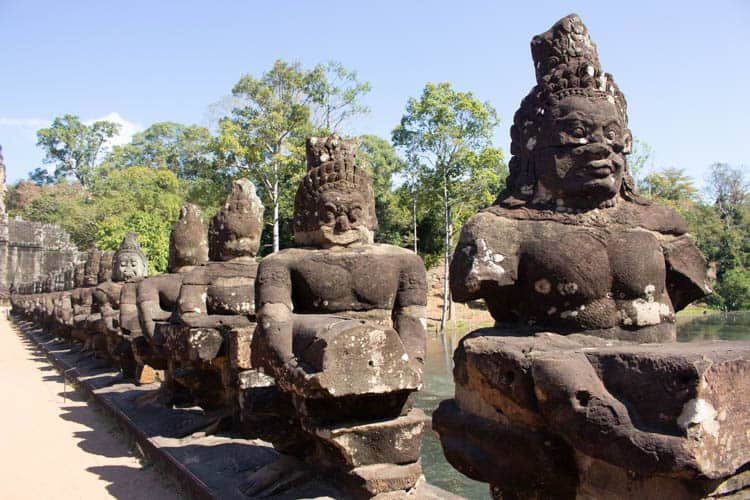
Like most visitors, we start our exploration at Angkor Wat itself. Our hotel, FCC Angkor, has provided a guide, and he is a wealth of knowledge. As we clamor up narrow stairs and walk along ancient hallways, he regales us with stories of those who built this place.
From there, we visit other temples – Bayon, with its giant stone faces, Banteay Srei and Ta Prohm, where Indiana Jones Temple of Doom and Tomb Raider were filmed.
Lesser-known temples like Beung Mealea, Srah Srang and Preah Khan have few visitors. It feels like we’re alone, stepping back into the past.
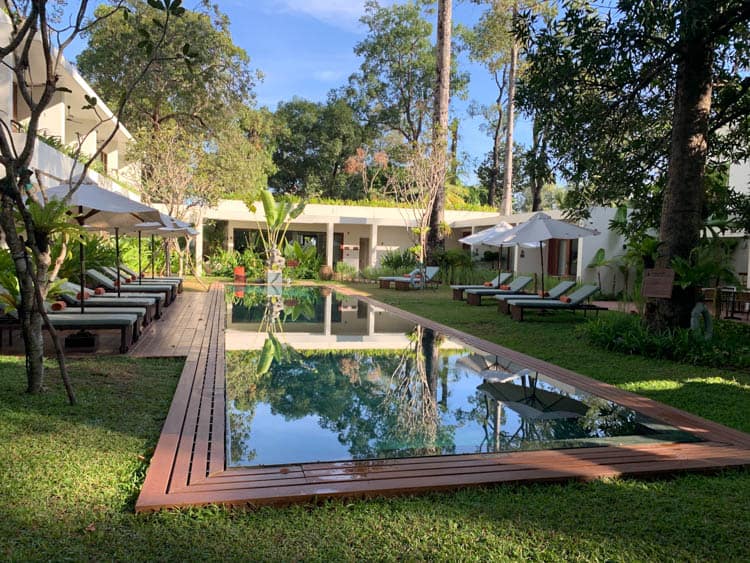
FCC ANGKOR BY AVANI: A PERFECT BASE FOR VISITING THE PARK
Visiting Angkor Archeological Park is an all-day event. Fortunately, we’re just 10 minutes from our hotel, so we can go back for breakfast after sunrise before returning to the park.
FCC Angkor by Avani Hotels and Resorts is our base for the first part of the week. Once the elegant mansion of the French colonial governor and home to the Foreign Correspondents Club, FCC Angkor has been beautifully renovated as a small luxury resort.
Its prime location along the river near the Royal Residence is just a 10-minute walk from Pub Street, which is ever-popular with locals and tourists, and near many shops and restaurants.
Set amidst tropical flora, fountains and trees, the resort has a peaceful feel. Its 80 colonial-style rooms and suites are decorated with hints of its past. I’m thrilled to find an old typewriter in our room.
We enjoy sitting at the Scribe, a contemporary take on the colonial-era bar, and dining on the terrace at the Mansion, the hotel’s signature restaurant. The hotel’s newly expanded Visaya Spa offers treatments that combine ancient Khmer techniques with modern spa treatments.
EXPLORING THE COMMUNITY
I’m most impressed, though, by FCC Angkor’s involvement in the local community. Their recommendations of what to do allow us to meet locals and experience Siem Reap in an authentic way.
Though Cambodia went through an unimaginable war a generation ago, I’m touched by their resiliency. Cambodians have a well-earned reputation for being friendly and gentle — and I see this firsthand when we explore the city. We’re treated with kindness and a welcoming smile.
Getting around in Siem Reap is simple. Tuk-tuks, a motorbike with a passenger cart, are everywhere, and cost just a few dollars per ride.
The hotel has recommended we dine at Haven Restaurant, a restaurant with a mission. Listed by TripAdvisor as one of the top restaurants in the city, its goal is to train young Cambodians from orphanages, shelters and poor communities in the restaurant business.
Founded by Sara and Paul Wallimann, a Swiss couple who fell in love with Cambodia, Haven trains young men and women to be chefs and restaurant professionals.
Chatting with Paul and the staff, it’s clear this is a labor of love. And the food? It’s excellent. I almost wish we lived in Siem Reap so we could dine here often.
From there, we visit Ammo Jewelry. The small shop makes exquisite jewelry and offers 90-minute jewelry classes. While Ben and I try our hand at engraving on brass, we learn that the shop trains disadvantaged youth in the art of jewelry design.
We chat with several young artisans as they work, then visit the Ammo store. I go home with several pieces, including a silver necklace that is my own name written in Khmer.
Just a short tuk-tuk ride from there is Kandall Village, Siem Reap’s rising arts district filled with galleries, cafes and boutiques. Tribe Urban Art Gallery, among the best known, showcases established and new local artists.
PHARE, THE CAMBODIAN CIRCUS
In the evening, we find ourselves sitting under a Big Top Tent. Phare, The Cambodian Circus, is one of the top tourist attractions in Siem Reap. Phare uses modern circus acts, music and theater to tell authentic Cambodian stories – and it has an altruistic goal too.
The nightly events support free schools, professional arts training and social programs in northwest Cambodia. The circus is professional and entertaining, and it feels good to support their endeavors.
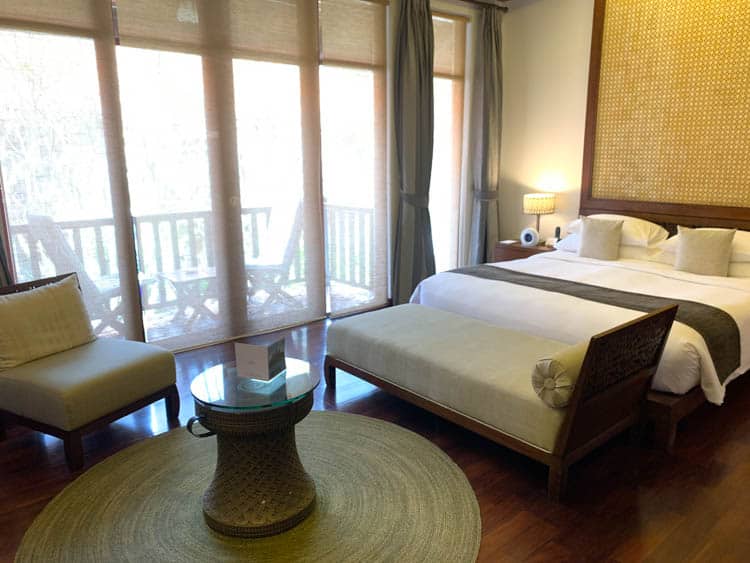
ANANTARA ANGKOR
Wanting to experience a different side of the city, we head to Anantara Angkor Resort for a few days. The boutique resort has 39 luxury suites and is known for its first-class service and top restaurant.
Our large room, with teak wood trimming and Khmer-inspired design, includes a patio overlooking restful pools, tropical foliage and colorful flowers.
All guests receive chauffeured roundtrip airport transport, and a ritual footbath upon arrival, as well as unlimited tut-tuk transfers to and from the city center.
The hotel staff gives us a private mobile phone to use while we’re in Siem Reap, and we can call anytime we need a ride. The Experience Butler helps us create a list of places to visit during our stay.
As a spa lover, I’m eager to visit Anantara Spa. Cambodia’s identity and culture are intrinsically linked to its beliefs, and those beliefs can be seen in all aspects of life, including the treatments of the Anantara Spa.
Each treatment and the rituals that are part of it follow Khmer healing practices and traditions in a holistic approach to modern enlightenment. The goal is to be able to focus the mind, harness your energies and emerge refreshed and purified.
For me, that means a soothing foot bath, followed by a relaxing massage. Afterward, while I’m enjoying hot jasmine tea, I’m invited to write my prayers or wishes on small waxy green leaves, which the staff will present later at the temple. The whole experience is moving, and I walk out refreshed.
ORGANIC FARMS
Cambodia is a mostly agrarian society. Fertile farmland, especially along the Mekong, produces rice, fruits and many vegetables.
Today, we get to visit one of those farms with Chef Sotho, the head chef at Anantara Angkor. It’s part of Spice Spoons, Anantara’s Signature Cooking School. Sometimes the class visits a bustling local market with Chef to purchase fresh produce; other times, like today, we get to visit a local organic farm.
Chef, Ben and I hop into a tuk-tuk, and head onto the streets of Siem Reap. Even though there are few stoplights, the never-ending flow of motorcycles (some with whole families aboard), tuk-tuks, rickshaws and cars flow well together.
In minutes, we’ve left the city behind and drive on dirt roads through the countryside. Eventually, we are met by a farmer with his oxcart. He’ll take us the rest of the way to the farm, so we happily climb aboard.
Oxen are an important part of farming here. Unlike horses, they can work in wet fields, and their lanky, but strong frames and docile manners make them easy to work with.
COOKING CLASS
When we arrive, Chef greets a woman hand-watering a row of leeks with dual cans hanging from her shoulders, then we walk through a tidy row of lettuce and fragrant herbs. We duck through a tunnel of cucumbers climbing with gusto over a wooden frame and pick several for our dinner.
All the while, he tells us of growing up on a farm just like this. It was only after an injury when he couldn’t farm, that he got a job at a hotel restaurant. The chef there saw his raw talent and taught him all he could.
Today, it’s Chef Sotho who is sharing his expert knowledge of cooking with us. Back at Anantara, he shows us how to prep the ingredients, and then make fresh spring rolls, Khmer chicken curry and taro root with sago.
While Ben and I are not known for our cooking, we enjoy the class immensely. We can’t wait to take this little bit of Cambodia home with us, in the recipes and knowledge that Chef Sotho has given us.
TREASURES OF SIEM REAP
All too soon, it’s time to head home. At the airport, though, we find our flight has been cancelled. How will we make our connecting flight home to the States?
The local gate agent hears our worry and quickly says in English: “No problem. We’ll take care of you.”
And he does, with quick and efficient movements. As he hands us our boarding passes, he comments: “You know, I really like your people. Thanks for visiting Cambodia.”

